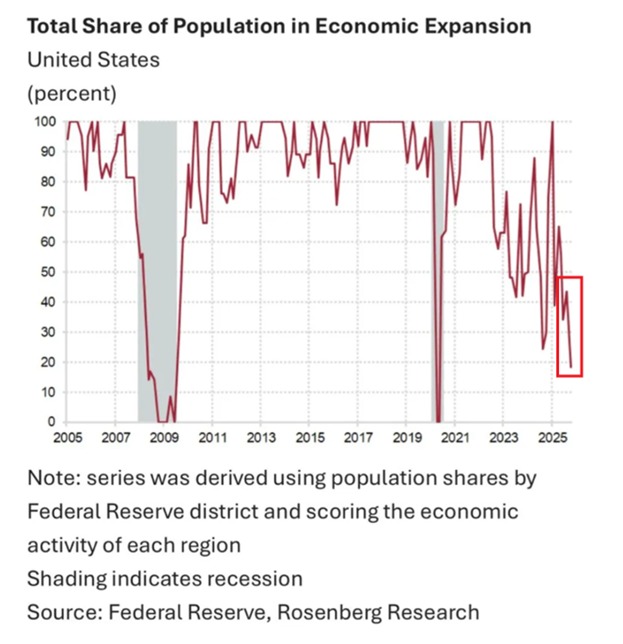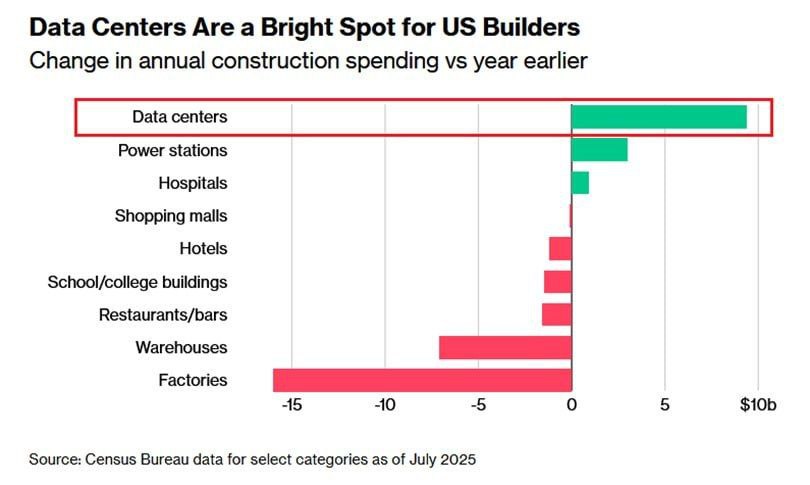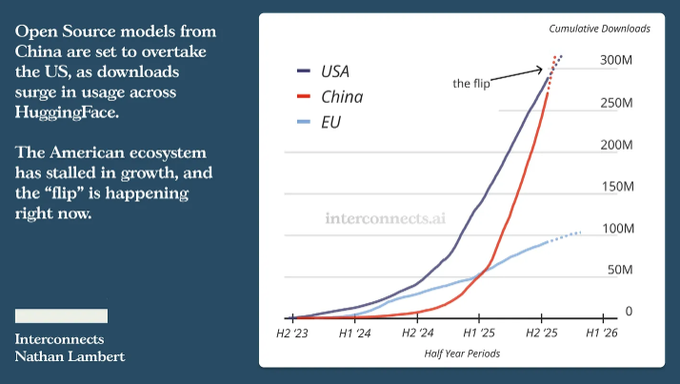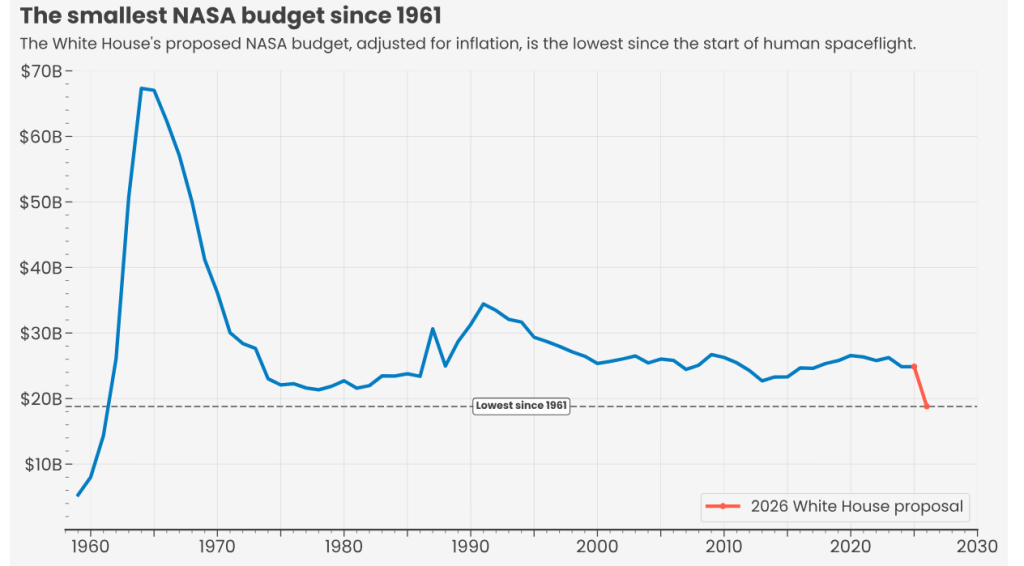Update 10.17: Added some of Gov. Pritzker’s threats of legal reprisal against Stephen Miller and my commentary on it at the bottom.
Opposition to the Trump regime’s infusion of ICE agents into Democrat-helmed cities and states is manifesting in two separate forms, seemingly uncoordinated: street-level resistance and state and local governments (the latter sometimes includes law enforcement).
I wrote yesterday for Naked Capitalism regarding the Trump administration’s increasing takeover of the federal government (headed up by Office of Management and Budget Director Russell Vought) and expanding ICE and National Guard assaults on Blue State cities (headed up by White House Deputy Chief of Staff Stephen Miller).
I thought a round-up of various efforts in Illinois to oppose the Trump takeover would be a good sequel to that piece.
Keep in mind that these oppositions are separate efforts.
We’re about 2 1/2 weeks into our annual fundraiser. Our goal is $12,500 (same as last year). So far we’ve raised $7,045 from 63 people out of a readership of about 10,000.
If you read this blog, you’re usually ahead of everyone else. You know, years in advance, much of what’s going to happen. The intelligence from this blog is better than what people pay $10,000/year for. Without donations and subscriptions, this blog isn’t viable. If you want to keep it, and you can afford to, please give. If you’re considering a large donation, consider making it matching. (ianatfdl-at-gmail-dot-com).
Subscribe or donate.
The New Yorker summed up recent Second City confrontations efficiently:
The most dramatic operation to date occurred on September 30th, at an apartment building at 7500 South Shore Drive. Hundreds of federal agents from Customs and Border Protection, the F.B.I., and the Bureau of Alcohol, Tobacco, Firearms, and Explosives stormed the hundred-and-fifty-unit building and questioned most if not everyone inside, allegedly because some people staying there had connections to drug and weapons crimes and violations of immigration law. Many of the building’s inhabitants, including children, were restrained and marched outside. A video of the operation, produced by the Department of Homeland Security, showed agents lining people up and loading them into vehicles, with the whirring of Black Hawk helicopters and a soundtrack of dramatic music in the background. By dawn, thirty-seven immigrants had been arrested. Hours later, Trump addressed leaders of the armed forces, whom Defense Secretary Pete Hegseth had summoned to Quantico from around the world. “We should use some of these dangerous cities as training grounds for our military,” Trump told them.
The Chicagoans resisting federal agents include immigrants and their communities: elected officials, immigration attorneys, faith leaders, teachers, and many others who’ve felt compelled to fight for their neighbors. Quincy Worthington, a pastor at Highland Park Presbyterian Church, has been going to demonstrations at an ICE facility in Broadview since the beginning of September. A fellow-pastor had said that he feared violence at the facility. Masked ICE agents wielded guns, and protesters hurled insults at them. The other pastor told Worthington that “police seem to respond well to clergy,” and asked Worthington if he would “mind going there and maybe being a police liaison, talking between law enforcement and protesters to make sure everything goes as smooth as it possibly can.” Worthington went with him, and now, he said, the protesters at Broadview feel like “another congregation to me.” The day I was there, Presbyterian, Lutheran, Unitarian Universalist, United Methodist, and United Church of Christ ministers huddled in a circle with protesters and shared communion. But the main way that Worthington uses his religious training, he told me, is “by being present, listening to people, comforting people, helping people if I can.”
In an October 4th memo to Hegseth, Attorney General Pam Bondi, and D.H.S. Secretary Kristi Noem, Trump ordered the deployment of the Illinois National Guard, writing, “The situation in the State of Illinois, particularly in and around the city of Chicago, cannot continue.” Federal facilities, he said, “have come under coordinated assault by violent groups intent on obstructing Federal law enforcement activities. These groups have sought to impede the deportation and removal of criminal aliens through violent demonstrations, intimidation, and sabotage of Federal operations.” National Guard troops from Texas and Illinois began to assemble on October 7th at the Army Reserve Training Center in Elwood, about fifty miles southwest of Chicago. Some went to the Broadview ICE facility; according to a statement from the U.S. Northern Command, the troops were assigned to protect federal property and personnel in the Chicago area. Two days later, a district judge, in response to a suit by Illinois and Chicago, blocked the National Guard’s deployment. The D.O.J. immediately appealed the court order, but, at least for now, the National Guard cannot help ICE carry out Operation Midway Blitz. Seemingly prepared for more court losses, Trump has also talked about the possibility of invoking the 1807 Insurrection Act, which would allow him to deploy the military in American cities, and against Americans, if courts, mayors, and governors were “holding us up.”
Citizen Activism in Chicago
From WBEZ in Chicago:
Cristóbal Cavazos leads the People’s Patrol, one of many volunteer rapid-response networks countering a Trump administration deportation blitz in the Chicago area. The idea is to locate immigration enforcement activity, record it, document abuses and, right on the spot, voice community opposition.
Cavazos’ network focuses on Chicago’s western suburbs. It’s housed at the Casa DuPage Workers Center, a small nonprofit devoted to immigrant rights.
…
Cavazos says the People’s Patrol includes 180 people, all volunteers. The center holds trainings for the work every other Friday.
As the volunteers go about their daily lives, they all keep an eye out for immigration enforcement activity. Some make a point of driving past parking lots and businesses where the federal authorities typically gather before a day’s operations.
The ICE officers usually drive unmarked vehicles. But People’s Patrol volunteers sometimes manage to tail them. If the officers stop a motorist or try to take people from a house or workplace, the volunteers send an alert through a Facebook page and through text groups.
“We’ll send people to go check it out,” Cavazos says. “We want to go in and show the community ‘Hey, we got your back.’ We’re in the midst of a historic fight-back right now against ICE. We’re not going to leave any space to ICE. The People’s Patrol is there to fill these spaces of terror and fear with solidarity and strength.”
Chicago organizer Kelly Hayes has posted about her efforts:
I left my apartment on foot, in the clothes I had slept in, and made my way up Clark Street, watching for any signs of ICE. When I saw a suspicious vehicle, I relayed what I’d seen through neighborhood channels that coordinate ICE watch activity. When I reached the intersection of Clark and Lunt, where the abductions had occurred, other neighbors, including some old friends of mine, were already assembling and taking directions from local organizers who had been preparing for this moment for months.
While some parts of Chicago have been targeted relentlessly during the recent federal onslaught known as “Operation Midway Blitz,” Rogers Park had seen more scattered reports of ICE activity—until Thursday, when their presence was confirmed at the start of the day with immigration arrests, and continually reported throughout the morning and afternoon. Neighbors fanned out, searching streets and alleyways for any sign of ICE activity, following up on reports, and communicating what we found. Before long, there were dozens, and then hundreds of people in the streets, watching and responding.
“Clark Street was flooded with people,” Daniel*, an activist with Protect RP, told me. “We had over 200 people on the streets. That was power.” Daniel noted that many people left work early, or “dropped whatever they were doing” to join the effort.
Longtime ICE watchers wore bright orange whistles around their necks, which are used to signal the presence of ICE. Newcomers received whistles from volunteers distributing them in the streets, making the crowds of ICE watchers a clear presence. The corridor of businesses on Clark Street, where many immigrants shop and work, was clearly defended by this mass presence.
Block Club Chicago has more on their efforts:
Ravenswood Community Services gathered volunteers Monday evening to assemble 600 whistle kits to pass out to parents and students. Pilsen Arts & Community House has a tutorial how to publish and distribute itsone-page whistle zine, which is available along with other printable resources online, and has been handing out whistle kits to local businesses to distribute.
Belmont Cragin United distributed 5,000 whistles at a recent event and is looking to hand out more than 12,000 by the end of October, said organizer Alonso Zaragoza. The organization recently launched Whistlemania, where volunteers assemble and distribute whistle kits across multiple Northwest Side neighborhoods. Each packet includes information on recognizing federal agents and advice from the ACLU, as well as a whistle to alert others in emergencies or during ICE encounters.
…
A new “walking school bus” program aims to provide a sense of security for families as they go to and from school, Zaragoza said. Seven or eight volunteers will position themselves along school routes, mirroring Safe Passage routes established by Chicago Public Schools. Similar corner watches have launched in Irving Park and Albany Park on the Northwest Side, as well.
“It’s about having bodies out around the school, keeping an eye out and making sure everybody’s safe,” Zaragoza said. “So that the kids who haven’t been going to school in the last couple weeks feel comfortable enough to come back and finish their education.”
After early challenges, the community-led effort is gaining traction as educators and parents work together. “Now the pieces of organizing are starting to fall into place,” Zaragoza said. “Everybody’s clicking together.”
I’ll wrap this section with a public Facebook post from K Hurley Wales:
Yesterday started like many others. Craig made us coffee. My neighbor offered us some freshly baked scones. The girls ate their breakfast, excited for a three day weekend and their daddy’s birthday.
At 8:15 AM, we learned that an elderly man had been tackled by border control in a nearby alley.
At 8:30 AM, ICE detained two landscapers near Foster and Lincoln, a few blocks away. The entire neighborhood came out to help by recording and protesting, one of whom happened to be a WGN producer. She was violently abducted. ICE slammed into a neighbor’s parked car during their rapid getaway and kept right on driving.
At 9 AM, our school principal initiated our rapid response network and hundreds of parent, staff, and communities mobilized to patrol our school in support of our at-risk families and to allow our children to safely play and learn outdoors.
At 10 AM, ICE arrived fully armed near Ravenswood Elementary, a local public school where many of our friends go and teach. I spoke directly with my dear friend who teaches there immediately after it happened and, as you can imagine, she was terrified and traumatized.
At 10:15, ICE was reported outside a local daycare, where many of our neighborhood kiddos go. As the day unfolded, at least 8 of our neighbors were detained, and there were dozens of confirmed ICE sightings outside local schools and businesses. Craig and I spent a collective 10 hours patrolling our daughters’ school. Several schools went into lockdown, following the same protocol response we’d follow for an active shooter.
Chicago and Illinois Elected Officials and Police
The Washington Post claims that Illinois Governor J.B. Pritzker “finds his place at the ramparts of the Trump resistance:”
Pritzker has positioned himself among the most visible and unflinching figures of the resistance. The mutual antagonism between him and Trump has escalated to a point rarely seen between a president and the governor of a large state.
A billionaire heir to the Hyatt Hotels fortune, Pritzker will be on the Illinois ballot next year for a third term, but he is also assumed to have national aspirations. He brought his battle cry to the traditional first-in-the-nation presidential primary state of New Hampshire earlier this year.
“It’s time to fight everywhere and all at once,” Pritzker declared in a speech that brought Granite State Democrats to their feet. “Never before in my life have I called for mass protests, for mobilization, for disruption, but I am now. These Republicans cannot know a moment of peace.”
Pritzker’s rhetoric is aggressive, but the actual steps he’s taking to resist are small beer:
As a governor, Pritzker has little by way of formal power to stand in Trump’s way, but Illinois has joined a lawsuit by state attorneys general against the president’s executive order banning birthright citizenship and led one to block the administration’s freeze on federal grants, which the White House subsequently rescinded. He has also barred rioters pardoned by Trump for the Jan. 6, 2021, attack on the U.S. Capitol from holding state government jobs.
…
“One reason that so few people have been picked up is because we have done, I think, a terrific job in our state of educating people about what their rights are,” Pritzker added, including the fact that a detainer issued by ICE does not have the force of a warrant issued by a judge or give agents the power to demand entry into a home.
The city of Chicago has at least deployed its Police Department, per the NY Times, which has come into direct conflict with ICE, although it’s not clear that was intentional on their part:
Federal agents deployed tear gas on Chicago residents and more than a dozen police officers on Tuesday, the latest clash in the nation’s third-largest city as the Trump administration has carried out its immigration crackdown.
The clash began on Tuesday morning when federal agents were seen chasing a car through a working-class, heavily Latino neighborhood on the city’s far South Side, witnesses said. An S.U.V. driven by the federal agents collided with the car they were pursuing, the Chicago Police Department said, sending that car into another vehicle that was parked nearby.
…
As the agents left, they released tear gas, apparently without warning, sending people coughing and running for cover. Among those affected by the gas were 13 Chicago Police Department officers, the police department said, and at least one officer was seen rinsing his eyes out with water from a neighbor’s garden hose.
Chicago PD Pissing Off National Police Union
One sign that the local authorities are at the very least, not helping with Trump’s clampdown is the angry objections of the National Fraternal Order of Police (FOP) via Fox News:
The nation’s largest police union condemned reports that Chicago officers were told not to help ICE agents surrounded by protesters, calling it “shocking” and a violation of law enforcement’s duty to protect fellow officers in danger.
Presidents of the National Fraternal Order of Police (FOP) and Illinois State FOP expressed shock at reports that Chicago’s chief of patrol directed officers not to assist U.S. Immigration and Customs Enforcement (ICE) agents as they were surrounded by protesters on Saturday.
“Details are still emerging, but it appears that officers from the Chicago Police Department were ordered not to assist a group of ICE agents while they were physically threatened by what appeared to be an angry mob,” said National FOP President Patrick Yoes in a press release. “Let me be clear, both the National FOP and the Illinois FOP believe that when an officer calls for assistance, you answer, no matter what.”
…
They cited the Illinois Trust Act, which limits local police involvement in immigration enforcement, and said it is contributing to a breakdown between local and federal law enforcement, particularly in sanctuary cities like Chicago.
Their comments followed Fox News’ report revealing that Chicago police officers were ordered by their chief of patrol not to respond after Border Patrol agents called for help, saying they were boxed in and surrounded following a ramming incident outside the city, according to multiple federal and Chicago law enforcement sources.
Fox News reviewed the computer-aided dispatch message sent to Chicago police officers by their chief of patrol. It instructed officers not to respond to a Saturday morning ramming incident on the southwest side of the city in which an armed woman was shot and agents were boxed in and surrounded.
The Chicago Police Department issued a statement on Sunday disputing claims that officers failed to respond, saying they were on the scene to maintain public safety and document the incident.
“To clarify misinformation currently circulating, CPD officers did in fact respond to the shooting scene involving federal authorities on Saturday to maintain public safety and traffic control,” the department said.
According to Seymour Hersh, the Trump administration is reportedly using these actions in Chicago, Portland, Los Angeles, and Washington, D.C. as a setup for more ambitious moves:
The Trump administration is playing another long game, or trying to, in the streets of US cities under Democratic Party governance, using existing presidential emergency powers to send National Guard, Army troops and ICE agents to hunt down and arrest suspected undocumented immigrants and detain and deport them, without the due process demanded by the Constitution. What’s happening now may be a trial run for the use of those forces to interfere on the behalf of the president and the Republican Party in states where the Democratic Party has a chance to win crucial seats in next fall’s Congressional elections.
None of this is going in a good direction, and I must commend the discipline of Chicago activists who have been restrained and seemingly effective in their ad hoc resistance efforts. I’m more skeptical of the efficacy of the actions taken by their elected representatives and local law enforcement.
Update: Found this Common Dreams post by way of Naked Capitalism:
Democratic Illinois Gov. JB Pritzker is warning top lieutenants of President Donald Trump’s violent and unlawful immigration enforcement policies that they will not always have the protection of presidential immunity and that lawmakers in the future will seek to hold them to account for their behavior, including unlawful orders given at the behest of the president.
With episodes of violent raids, unlawful search and seizures, and the mistreatment of immigrants, protesters, journalists, and everyday citizens, Pritzker, in a Thursday evening interview on MSNBC, specifically named White House deputy chief of staff Stephen Miller, border czar Tom Homan, and Gregory Bovino, the Customs and Border Patrol commander operating in the Chicago area, as people whose actions will not be forgotten.
Pritzker said that all the people serving the president, “including all the way down to ICE agents, can be held accountable when there’s a change in administration that’s willing to hold them accountable when they break the law.”
Calling out Miller in particular, the governor charged that the xenophobic Trump advisor, who has been a leading champion and director of the harsh crackdown measures and federal deployments in Los Angeles, Washington, DC, Chicago, and elsewhere, has “clearly ordering people to break the law.”
I gotta say this strikes me as foolish. Threatening the White House Deputy Chief of Staff with prosecution serves no one’s interest. If Pritzker gets elected, he should, by all means, prosecute Miller and any other Trump official who violated the law, but in his current position of impotence, it’s best to keep his mouth shut.
There’s every reason to believe that the misguided Russiagate lawfare and impeachment over Ukraine bullshit radicalized Trump and made him more determined to seize the full reins of the Federal government in his second term.
Miller, et al., are chomping at the bit to pre-emptively prosecute Democrats. Pritzker is bringing a knife to a gunfight, something any Chicagoan should know not to do.



 This is, again, because Chinese models are at least 90% cheaper to run, and mostly open source. Only a complete and utter moron would run their business using proprietary models where OpenAI or Anthropic can jack up the price any time they want or depreciate the model you actually needed. Even US startups agree, 70 to 80% of them are using Chinese open models.
This is, again, because Chinese models are at least 90% cheaper to run, and mostly open source. Only a complete and utter moron would run their business using proprietary models where OpenAI or Anthropic can jack up the price any time they want or depreciate the model you actually needed. Even US startups agree, 70 to 80% of them are using Chinese open models.
